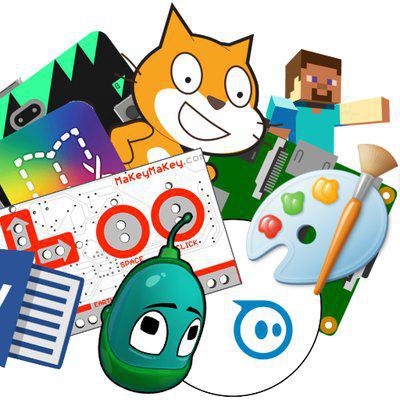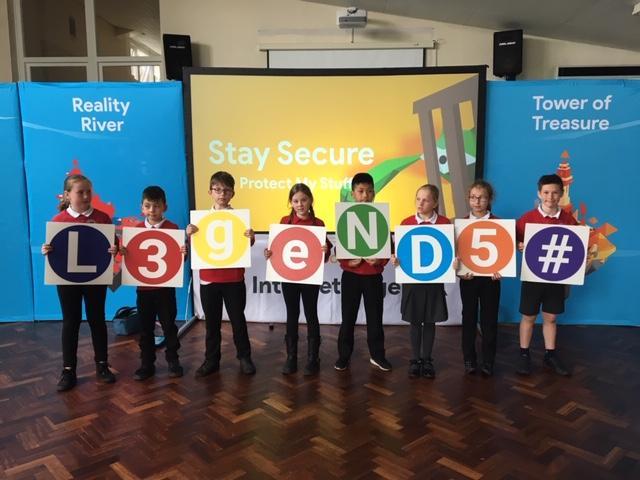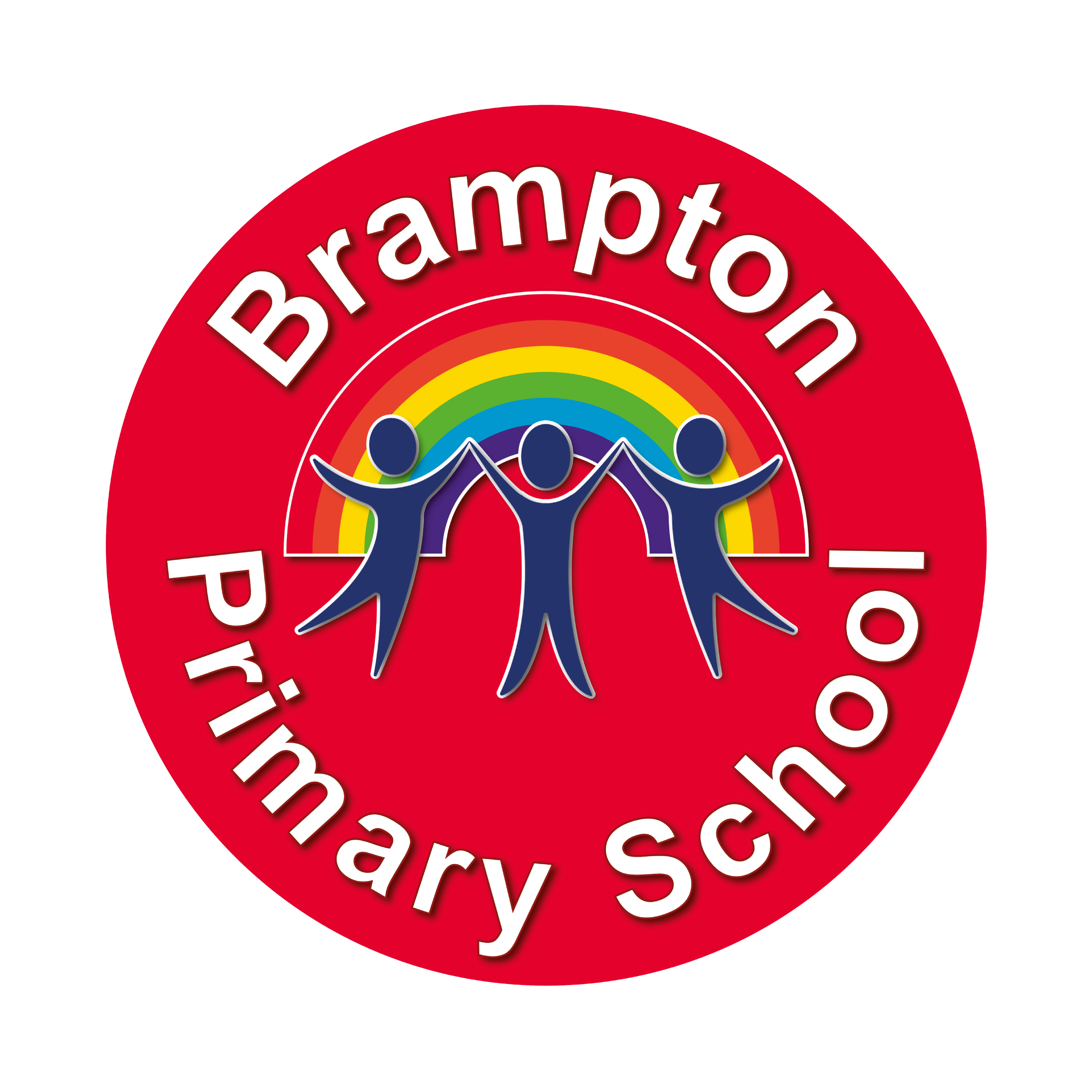Computing
Intent
 At Brampton Primary School we aim to ensure that all of our pupils have access to a computing curriculum so that they have opportunities to gain knowledge and develop skills that will equip them for an ever-changing digital world. We believe the knowledge, skills and understanding taught through our curriculum will empower our pupils to become more computer literate and have a range of transferable skills at a suitable level for future education and the workplace. We also strive to ensure that our curriculum teaches pupils to be responsible online citizens.
At Brampton Primary School we aim to ensure that all of our pupils have access to a computing curriculum so that they have opportunities to gain knowledge and develop skills that will equip them for an ever-changing digital world. We believe the knowledge, skills and understanding taught through our curriculum will empower our pupils to become more computer literate and have a range of transferable skills at a suitable level for future education and the workplace. We also strive to ensure that our curriculum teaches pupils to be responsible online citizens.
We follow the progression of skills set out in the Kapow scheme of work which aligns closely with the National Curriculum. This scheme is tailored to suit the hard/software which we have available in school. It also satisfies the objectives of the DfE’s Education for a Connected World framework. This guidance was created to help equip children for life in the digital world, including developing their understanding of appropriate online behaviour, copyright issues, being discerning consumers of online information and healthy use of technology.
Our intention is that computing also supports children’s creativity and we look for cross-curricular learning opportunities to engage and enrich their experiences in school.
Implementation
The National curriculum purpose of study states:
‘The core of computing is computer science, in which pupils are taught the principles of information and computation, how digital systems work, and how to put this knowledge to use through programming. Building on this knowledge and understanding, pupils are equipped to use information technology to create programs, systems, and a range of content. Computing also ensures that pupils become digitally literate – able to use, and express themselves and develop their ideas through, information and communication technology – at a level suitable for the future workplace and as active participants in a digital world’.
Therefore, our scheme of work is designed with three strands which run throughout:
- Computer science
- Information technology
- Digital literacy
Our Curriculum overview shows which of our units cover each of the National curriculum attainment targets as well as each of these three strands.
Our Progression of skills shows the skills that are taught within each year group and how these skills develop year on year to ensure attainment targets are securely met by the end of each key stage.
Our scheme of work is organised into five key areas, creating a cyclical route through which can develop their computing knowledge and skills by revisiting and building on previous learning:
- Computer systems and networks
- Programming
- Creating media
- Data handling
- Online safety
The implementation of this ensures a broad and balanced coverage of the National curriculum requirements, and other cross-curricullar work provides pupils with the opportunity to learn and apply transferable skills in a meaningful way.
Lessons incorporate a range of teaching strategies from independent tasks, paired and group work as well as unplugged and digital activities. This variety means that lessons are engaging and appeal to those with a variety of learning styles.
Computing lessons are timetabled each week in our Computing suite. Some classes teach their units of work in single weekly hour-long sessions where others may block book sessions and cover units more intensively. This varies depending on the age of the children and the content being covered.
Each class in school has its own box of six iPads which are accessed daily for different teaching tools while our bespoke computing suite offers access to stand-alone PCs, laptops, mini-laptops and programmable robots. This variety of hardware ensures that children have exposure to different machines and methods of operation such as touch screen, mouse and trackpad.
Differentiated guidance is available for all lessons to ensure that they can be accessed by all pupils and opportunities to stretch pupils’ learning are available when required. Knowledge organisers for each unit support pupils in building a foundation of factual knowledge by encouraging recall of key facts and vocabulary.
We believe that strong subject knowledge is vital for staff to be able to deliver a highly effective and robust computing curriculum. Each of the taught units of lessons include teacher videos to develop subject knowledge and support ongoing CPD. Further CPD opportunities are also provided via webinars with our Computing subject specialists and through our cluster work with other schools. The resources we use have been created with the understanding that many teachers do not feel confident delivering the computing curriculum and every effort has been made to ensure that they feel supported to deliver lessons of a high standard that ensure pupil progression.
Online safety is discussed regularly in school and in the wider school community. Each year group’s online safety is delivered in a single Computing lesson each half term. Further consolidation takes place through crossover elements of the RSE curriculum and online safety advice is shared regularly with parents via our fortnightly newsletters.
Assessment of computing takes place termly and the outcomes of these assessments are added to our online tracking tool. The Computing subject leader can then monitor and evaluate outcomes in the subject.
Impact
 The impact of our Computing curriculum is constantly monitored through both formative and summative assessment. Each lesson includes opportunities to assess pupils against the learning objectives and each unit has a unit quiz and knowledge catcher which can be used at the start and/ or end of the unit. This assessment information is then added to our online tracking tool where the Computing subject leader can then monitor and evaluate outcomes in the subject.
The impact of our Computing curriculum is constantly monitored through both formative and summative assessment. Each lesson includes opportunities to assess pupils against the learning objectives and each unit has a unit quiz and knowledge catcher which can be used at the start and/ or end of the unit. This assessment information is then added to our online tracking tool where the Computing subject leader can then monitor and evaluate outcomes in the subject.
After the successful implementation of our curriculum, pupils will leave school equipped with a range of skills to enable them to succeed in their secondary education and be active participants in the ever-increasing digital world.
The expected impact is that children will:
- Be critical thinkers and able to understand how to make informed and appropriate digital choices in the future.
- Understand the importance that computing will have going forward in both their educational and working life and in their social and personal futures.
- Understand how to balance time spent on technology and time spent away from it in a healthy and appropriate manner.
- Understand that technology helps to showcase their ideas and creativity. They will know that different types of software and hardware can help them achieve a broad variety of artistic and practical aims.
- Show a clear progression of technical skills across all areas of the National curriculum - computer science, information technology and digital literacy.
Examples of Work:
Year 2 Scratch Programming:
Year 5 Stop Motion Animation
Year 1: BeeBot Demonstration
External Links
-
In the News We recently took part in an E-safety assembly which was presented by Google & Parent Zone to our Key Stage 2 children. Their visit made the local news.
